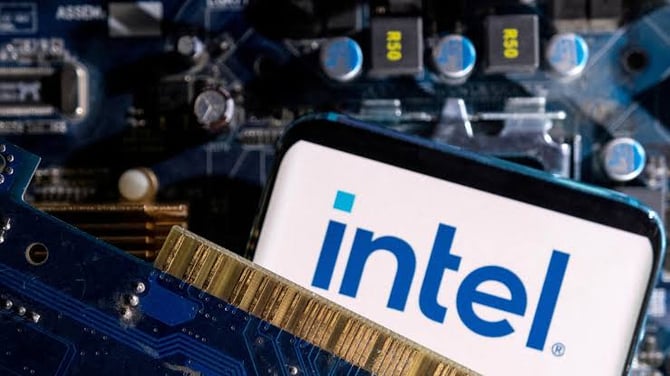Intel Releases New AI Chip to Challenge Nvidia and AMD

On Thursday, Intel revealed its latest advancements in computer chips, featuring the Gaudi3, a new artificial intelligence chip tailored for generative AI applications. Slated for release next year, Gaudi3 aims to rival similar offerings from Nvidia and AMD, which currently power large, energy-intensive AI models.
Key AI models, such as OpenAI's ChatGPT, predominantly utilize Nvidia GPUs hosted in cloud environments. This reliance has contributed to Nvidia's stock soaring nearly 230% this year, outpacing Intel's 68% increase. In response, companies including AMD and now Intel, are launching their own chips, seeking to challenge Nvidia's market dominance.
Details on Gaudi3 remain sparse, but it's expected to contend with Nvidia’s H100, widely used in constructing vast chip farms for AI applications, and AMD’s upcoming MI300X, once it commences distribution in 2024.
In addition to Gaudi3, Intel introduced the Core Ultra chips, tailored for Windows laptops and PCs, and the latest fifth-generation Xeon server chips. Both categories feature an integrated AI component, termed an NPU, designed to expedite AI program execution.
What does this mean for me?
This move signifies a broader industry trend, with processor giants like AMD and Qualcomm pivoting their product lines towards AI and signaling to investors the anticipated surge in chip demand driven by AI models.
Intel highlighted that its newest Xeon processor is especially efficient for AI model inferencing - a phase less energy-demanding than the training process.
More News

US Stocks in 2026: Still Climbing, But Can They Sustain This Pace?
17 hours ago

Market Summary: What happened yesterday and what awaits us today, December 31st
1 day ago
.webp)
Market Roundup: What Happened Yesterday and What We Can Expect Today (December 30)
2 days ago

Zepto’s $1.2bn IPO Tests India’s Quick-Commerce Boom
3 days ago

Wall Street Rallies as the S&P 500 Pushes Deeper Into Record Territory
5 days ago

Novo Nordisk Shares Soar as FDA Clears First Weight-Loss Pill
1 week ago

From Comeback to Contender: Can Europe’s Banks Deliver Again in 2026?
2 weeks ago

Oracle’s Miss Stirs Fresh AI Bubble Jitters
3 weeks ago